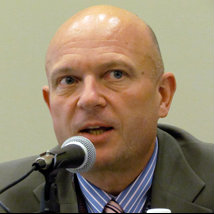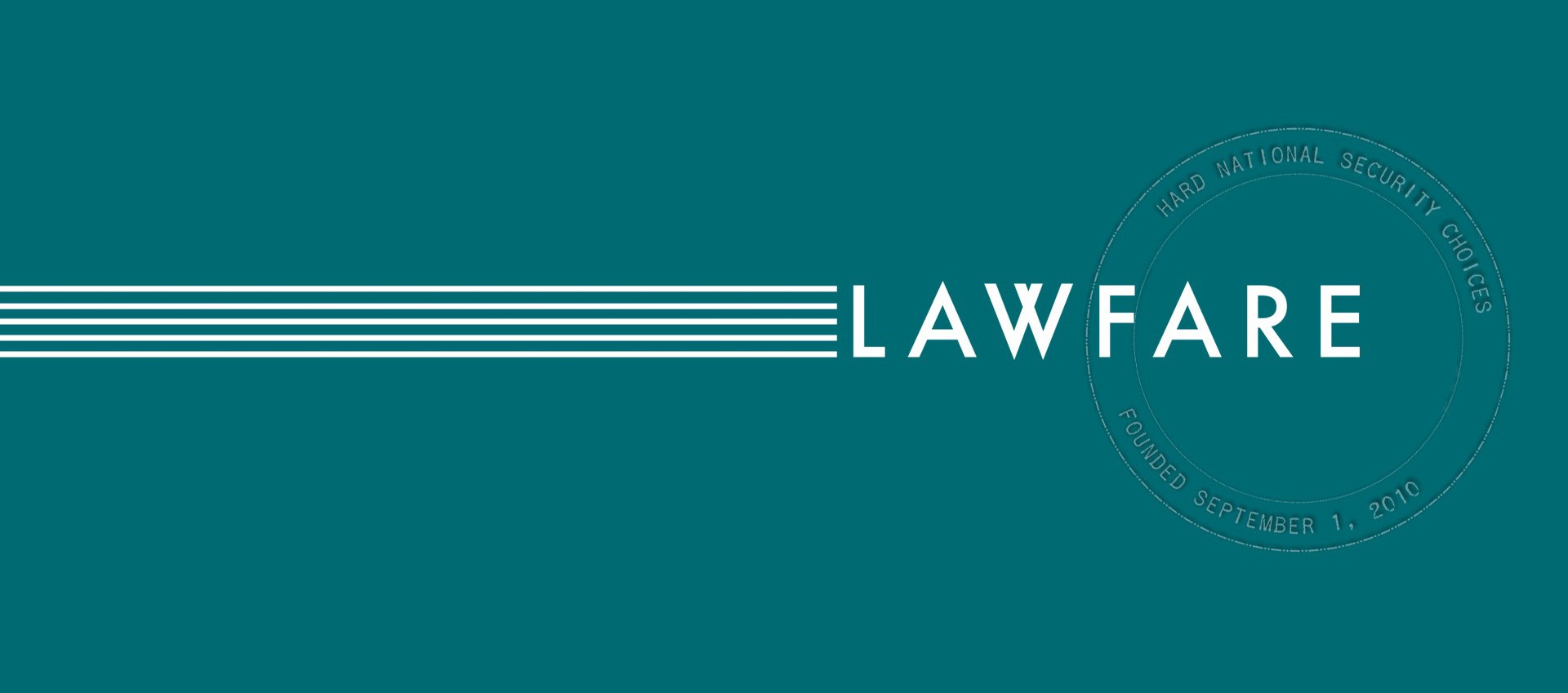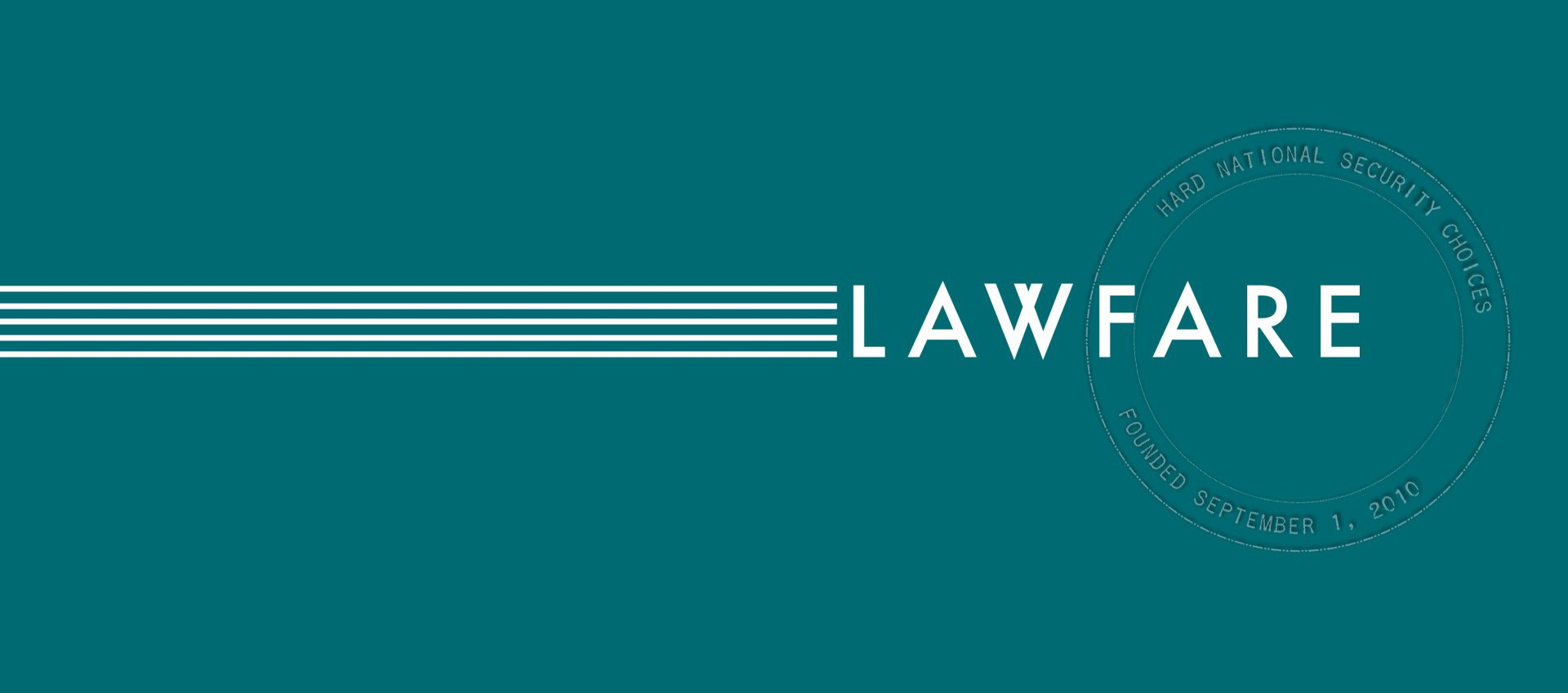A Dissertation on the Strategic Logic of Military Coups
In light of the coup attempt in Turkey (still apparently underway at this writing), I want to note a fairly recent book on coup d'etats from a political science perspective - Naunihal Singh's Seizing Power: The Strategic Logic of Military Coups (Johns Hopkins Press 2014). Singh is a professor at the Air War College in Alabama, and this volume appears to be a published version of his dissertation.
Published by The Lawfare Institute
in Cooperation With

In light of the coup attempt in Turkey (still apparently underway at this writing), I want to note a fairly recent book on coup d'etats from a political science perspective - Naunihal Singh's Seizing Power: The Strategic Logic of Military Coups (Johns Hopkins Press 2014). Singh is a professor at the Air War College in Alabama, and this volume appears to be a published version of his dissertation. It is organized and written in a clear, straightforward fashion, deploying game theory as its intellectual framework to explain the strategic logic behind military coups. The primary example used in the book is Ghana and its 10 coups or attempts between 1967 and 1981, with a final chapter raising the attempted military coup in Russia, 1991.
Granted, these examples will not be of great interest to most readers interested in current events in Turkey. However, the opening book's opening chapters give a useful introduction to the political science literature seeking to explain military coups from a variety of theoretical perspectives. The book turns from an overview of various political science frameworks for understanding coups to Singh's main theoretical interest - a game theory perspective on the logic of military coups, including both coups from the "top" of the military, coups from the "bottom," and coups from the "middle." Chapter 2, simply titled "Theory," examines three different theoretical perspectives - coups as "battles," coups as "elections," and coups as "coordination games."
Chapter 3, "Counting Coups," offers a particularly interesting empirical study using an original data set compiled by the author. It is an examination of all coups that Singh could identify between 1950-2000. Singh draws the quite compelling conclusion from the data that between 1950 and 2000, a "majority of countries in the world experienc[ed] a least one coup attempt ... 80% of countries in sub-Saharan Africa, 76% of countries in North Africa and the Middle East, 67% of countries in Latin America, and 50% of countries in Asia had at least one coup attempt" during that period. In addition to this dataset (which also looks at percentages of successful coups versus attempts and other basic questions), Seizing Power's focus on Ghana is more interesting than one might suspect, particularly because of the extensive interviews the author conducted with key players in Ghana. If one is looking for a useful background to the literature of coups from a political science perspective, this is a good place to begin. Indeed, one might usefully begin with Seizing Power's definition of a coup:
A coup attempt is defined as an explicit action involving some portion of the state military, police, or security forces, undertaken with intent to overthrow the government. This definition retains most of the aspects commonly found in definitions of coup attempts while excluding a wide range of similar activities, such as conspiracies, mercenary attacks, popular protests, revolutions, civil wars, actions by lone assassins, and mutinies whose goals explicity excluded taking power (e.g., over unpaid wages). Unlike a civil war, there is no minimum casualty threwhold necessary for an event to be considered a coup, and many coups take place bloodlessly ... A coup attempt is coded as successful [for purposes of the empirical dataset] if it displaces the government of the country for at least one week and the new government that takes control is substantively different.
Military coup d'etats have not been at the center of security studies in recent years, however. Scholarly and policy attention has focused instead on transnational terrorism, jihadist insurgency, and other aspects of global political violence. This is so notwithstanding the persistence and importance of the military coup international politics - e.g., Egypt, to take just one obvious example of why the military coup remains relevant. General intellectual and policy disengagement with the topic was why His Serenity decided to pass on doing even a brief review of Seizing Power when it first arrived at Lawfare in 2014. Events in Turkey in the last 24 hours, however, suggest that the subject bears renewed attention. There are other important, older books in the field as well - His Serenity would particularly point to his personal favorite, Edward Luttwak's 1979 book, Coup d'Etat: A Practical Handbook (Harvard UP 1979), which the New Yorker described in its review at the time as "wicked, truthful, and entertaining." (Alas, not on Kindle; I happen to still have my undergraduate copy, from a UCLA course on political violence offered by the editor emeritus of the Journal of Terrorism and Political Violence, David Rapoport.)
There have already been questions - premature at best, in the view of His Serenity - as to why the US government did not anticipate or predict the current coup attempt in Turkey (if in fact it did not, including in non-public communications). Without saying anything about Turkey today, I would simply point to a passage in Luttwak's 1979 book:
[C]oup d'etats are annoying not only for practising politicians but also from the point of view of the political scientist ... coups are quite unpredictable, [and] almost by definition they are mortal enemies of orderly hypotheses and concepts: how does one account scientifically for the political ambitions of a few strategically well placed individuals?
My own view of the "political science" of coups is that explanations from game theory, coordination games, etc., have to be situated first within a social understanding - countries in which serial, bloodless coups are "normal" require a quite different analysis from countries in which a military coup is an utter break with legitimacy, such as the Pinochet coup against the Allende government in a country, Chile, possessing a history of successful democratic transition. The social context in which abstract political science analyses necessarily must fit, it seems to me, often can be best understood by the detailed, granular, qualitative accounts of journalists and many other types of observers of a society other than political scientists (at least insofar as they are focused on abstract predictive models). My own, personal experience of coup d'etats in their social setting, for example, has been mostly in the context of Latin America - which seems to me to have had a broad and loosely shared understanding of the legitimacy and illegitimacy of military coups over the course of the last 150 years; after all, legitimacy, following the initial military actions, is usually the long-run issue for a coup-established new regime.
Unsurprisingly, the great novelists of Latin America have written some of the most insightful commentaries on the coup d'etat - Mario Vargas Llosa, to start with, but I would also point to Gabriel Garcia Marquez' remarkable 1970s novel (in some ways best understood as a lengthy prose poem), The Autumn of the Patriarch. The scariest attempted coup in which I was personally present in a minor way occurred in Panama in 1988, when one of Manual Noriega's deputy commanders had a falling out with the general and attempted a rebellion. The rebel commander had apparently had a 'come to Jesus' moment (literally) and wanted to confess his crimes to an international human rights lawyer, who turned out to be me (and his sins to a priest, who was also standing by, and finally there was also a notary public specially brought to the house, to attest to the commander's signature). I went to the commander's house to take down his account and (it being longer than I had anticipated) found myself trapped overnight as Noriega's forces surrounded the place, threatening to storm it. This was, as it happens, the first time I (gratefully) made the acquaintance of Claudio Grossman, then a professor and later my dean at Washington College of Law, American University, who was present on the scene on behalf of the OAS Interamerican Commission on Human Rights. I waited until dawn in the compound and then, once it was light, walked into the street as he approached to escort me to a secure zone.
This sounds much more dangerous, risky and exciting than it actually was, I hasten to add. Unlike the dangers that journalists, humanitarian workers, and such personnel face today in so many places in the world, no one had a particular interest in kidnapping or killing me. On the contrary, being an American in those situations in Latin America often conferred a lot of protection that people in these roles cannot rely on in many places in the world today. That said, it appears that the military coup remains a part of the menu of international politics - about which it is worth having some kind of conceptual framework.
(This post has been edited by the author to add some quotations and clean up the writing a bit.)




